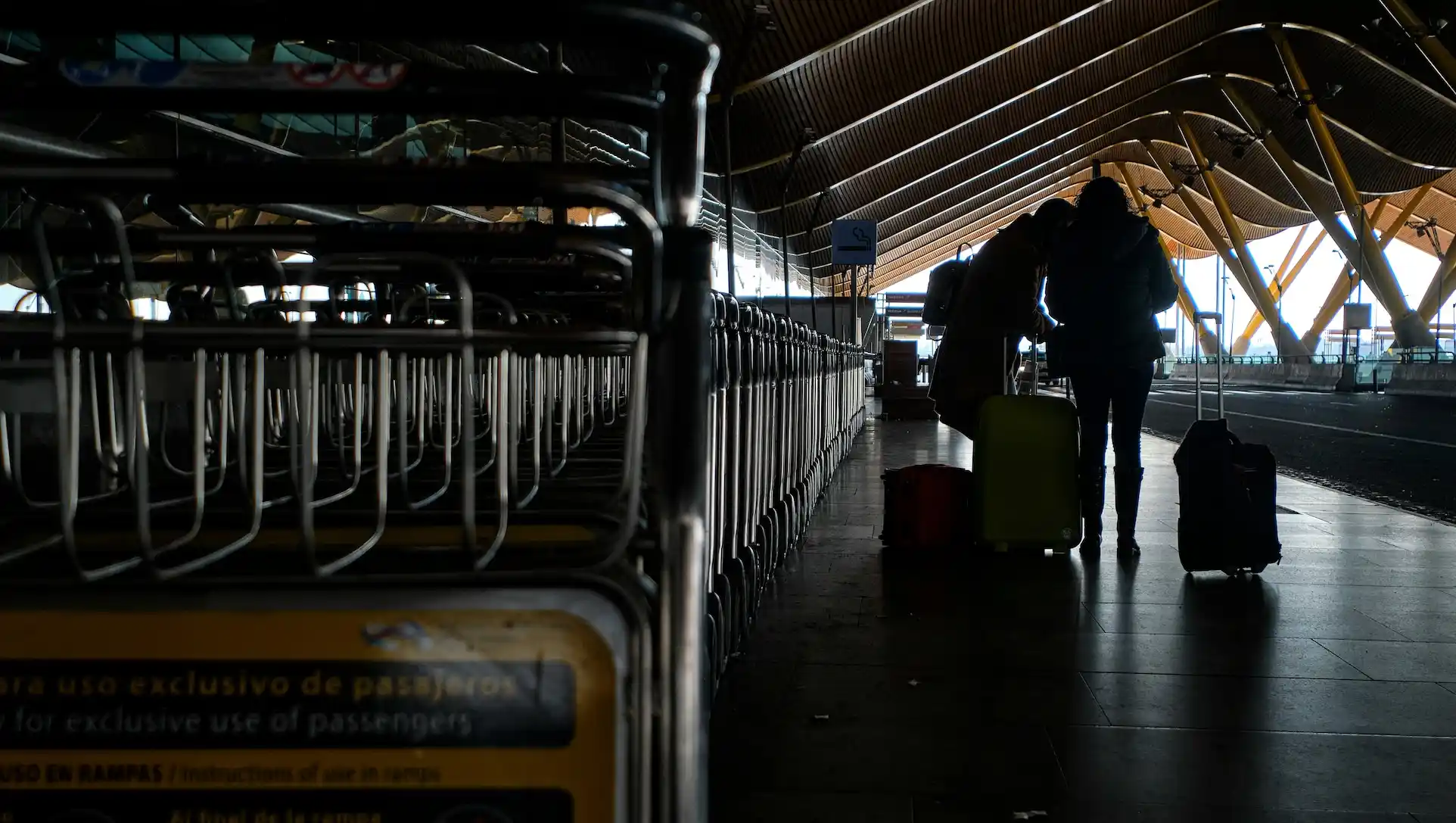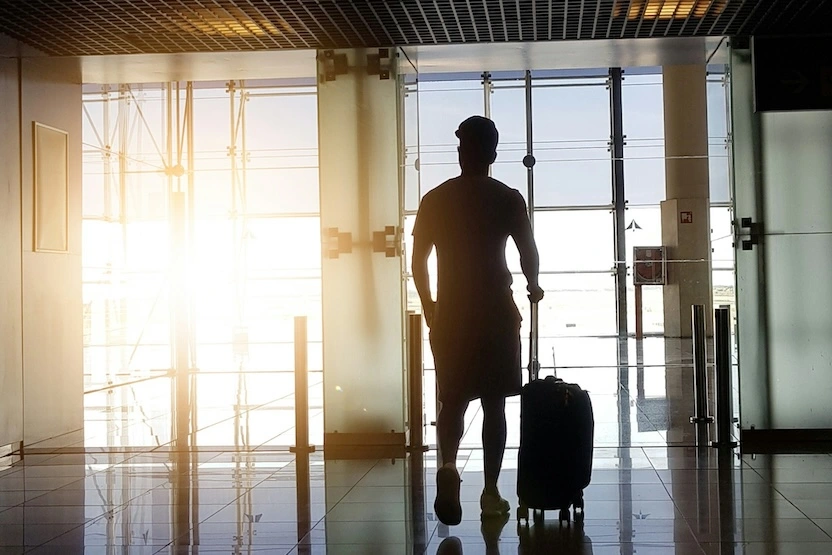
Why Spain is Changing its Travel Requirements for Tourists
Sarah Pardi - December 23, 2025
Home > Travel Requirements, Policy & Authorization > Why Spain is Changing its Travel Requirements for Tourists
Share this post
Travel continues to evolve in Europe with Spain’s newest update that directly impacts all tourists heading to Spain.
As of December 2nd, 2024, personal traveler information must now be passed on to the Spanish government.
In this article, we will share what is known about Spain’s newest tourism policy and how it affects travelers from the US, UK, and elsewhere.
What is changing for tourists traveling to Spain?
Up until now, hotels and car rental companies have had to collect some personal information from tourists (such as name, phone number, and other personal details) when accommodations were booked on-site, but internet bookings were excluded.
This exclusion wasn’t intentional, however. The policy was created before the travel industry’s widespread use of the internet.
With this new decree, personal information must be collected regardless of how the booking is made and then promptly passed on to Spanish authorities.
Businesses will also be required to keep digital records of the collected details for 3 years from the last date of service.
When providing this data, travelers over the age of 14 will be required to provide a signature. Travelers under the age of 14 are exempt from signing, but the adult accompanying them must provide their data on their behalf.
Reports have varied about how this information will be collected, though the decree explicitly mentions “entry forms” and "sheets" that will require signatures. The decree also specifies that the businesses themselves are responsible for the accuracy of this collected information - meaning all information matches the details found on the traveler's official identification.
Which tourists does this change apply to?
While many sources have focused on the impact on British travelers post-Brexit, this change applies to all travelers heading to Spain, regardless of where they're traveling from.
If you're traveling to Spain from the UK, US, Canada, or any other country, this new policy will apply to you.
The official document doesn't indicate whether or not there will be any exclusions, such as for travelers who are residents of the Schengen zone.
What information will I need to share when traveling to Spain?
According to the official Royal Decree, businesses will be required to collect 40-60+ pieces of personal information, but this information will vary slightly between hotel/accommodation services and motorized vehicle rentals.
In general, travelers will be required to share:
- First and last name (and middle name if applicable)
- Email address
- Sex
- Nationality
- Type of document including your Identity document number/Document support number
- Place of residence including your full address
- Place of birth
- Mobile phone number and landline (if applicable)
- How you are paying for the service including payment type (cash, credit card, transfer, etc.), card type and number (if applicable), bank account IBAN (if applicable), holder of the payment method, card expiration date, and date of payment
Hotel accommodations will also be required to collect:
- The number of passengers in your party and relationship if any of the travelers are minors
- Service contract details including a reference number and party signatures for those over the age of 14
- Date and time of both hotel entry and departure
- Property details including the full address, number of rooms, and whether or not an Internet connection is included
When renting a motorized vehicle, some other pieces of information will be required, including:
- Driver's license, including license numbers and validity of anyone who will be operating the vehicle
- The time and location of pick up, as well as the place and time of return
- Vehicle data including brand, model, kilometer readings, and more
How will I need to share this information?
Businesses will collect traveler information via entry forms and/or sheets, and then digitally pass the information on to the Spanish government. Once collected and shared, businesses are required to keep a digital record of your details for 3 years. In some cases, this includes the data of those under the age of 14.
Businesses that are required to collect and share this data include hotels, hostels, bed and breakfasts, campgrounds, motorhome parking areas, short-term vacation rentals, Airbnb, rental cars or other motorized vehicles, and more.
Sources have speculated on these new processes, wondering if they could slow down already tedious check-ins. However, according to the official decree, these new procedures were developed transparently, with input from affected parties in an attempt to avoid unnecessary administrative burdens.

Will anyone have access to my personal information and how will my data be used?
The information that is collected by Spanish businesses will be digitally kept for 3 years after the last date of the contract or service provided.
In addition to that, your data will also be kept in 2 files located in Spain's Secretariat of State for Security. When it comes to access, the Security Forces and Corps will be able to access these files if they are assigned to them for crime prevention, detection, and investigation. Judicial authorities and the Public Prosecutor's office will also be able to access these files.
While specific examples haven't been given, the decree also keeps the opportunity open for this data to be shared between other police databases with the shared goal of crime prevention, detection, and investigation.
Why is Spain changing its guidelines for tourists?
While this change may seem sudden, the decision for this new policy was made in 2021 and has just now gone into effect.
The text in Royal Decree 933/2021 focuses on safety as the main reason for these new guidelines. According to this document, these changes are being made for:
- The protection of people and property
- The maintenance of citizen tranquility
- Defense against attacks on public safety (terrorism and organized crime)
According to this decree, the greatest attacks on public safety are carried out by both terrorist activity and organized crime.
With this new policy, Spanish authorities hope to be able to spot more unusual, dangerous activity by having robust information about foreigners renting short-term accommodations and/or vehicles.
What happens if I don’t provide my personal information?
According to multiple media sites, businesses run the risk of being grossly fined for failure to comply with this new decree.
When it comes to travelers, repercussions (if any) haven’t yet been communicated.
Some worry that Hotels/Airbnb and car rental companies may deny services to tourists if they refuse to share their personal information, but this information is speculative and hasn’t been divulged.
The decree does state that businesses can be seriously punished if they don't maintain sufficient documentary records or if they omit mandatory communications. They may face minor infractions if documents are considered incomplete or irregular, as well as if they fail to communicate within the outlined timeline.
Are you planning a trip to Spain?
Protect your Spanish holiday now ✈️
Do I need to share my information if I am staying with a family member or friend in Spain?
The official document doesn't provide any information as to whether or not family members or friends will need to cooperate with this new policy.

Entry requirements for Spain: what else is changing?
In 2026, travelers from the UK, the US, and some other countries will be required to apply for ETIAS before traveling to Spain or any other country in the Schengen zone.
ETIAS is a pre-travel authorization that permits visa-exempt travelers to enter a Schengen country (such as Spain). Previously, travelers holding UK or US passports did not need any authorization for short-term travel to the Schengen area. ETIAS changes this.
Visa-exempt travelers will be required to supply personal information, such as the name of their parents and their highest level of education. Additionally, they’ll be required to pay a fee of 20 euros.
The ETIAS requirement hasn’t started yet but was expected to launch in 2025. As of March 2025, it is now expected to launch at the end of 2026.
Key takeaways for new policies for travelers to Spain
- Personal information must now be sent to Spanish authorities.
- This new policy went into effect on December 2, 2024.
- Hotels, Airbnbs, campgrounds, and more are required to submit guest information to Spanish authorities.
- Motorized vehicle rental services will be required to pass on renter information to Spanish authorities.
- This change impacts all travelers to Spain.
- This new policy was created as a defense against attacks on public safety and organized crime.
- Visa-exempt citizens will be required to apply for ETIAS before traveling to Spain in 2026.
Related posts
Upcoming travels ? Get Insured !
Find the right insurance for your trip by using our powerful comparison tool!
Sarah Pardi - February 19, 2026
Sarah Pardi - February 13, 2026
Sarah Pardi - February 12, 2026
Sarah Pardi - February 6, 2026





